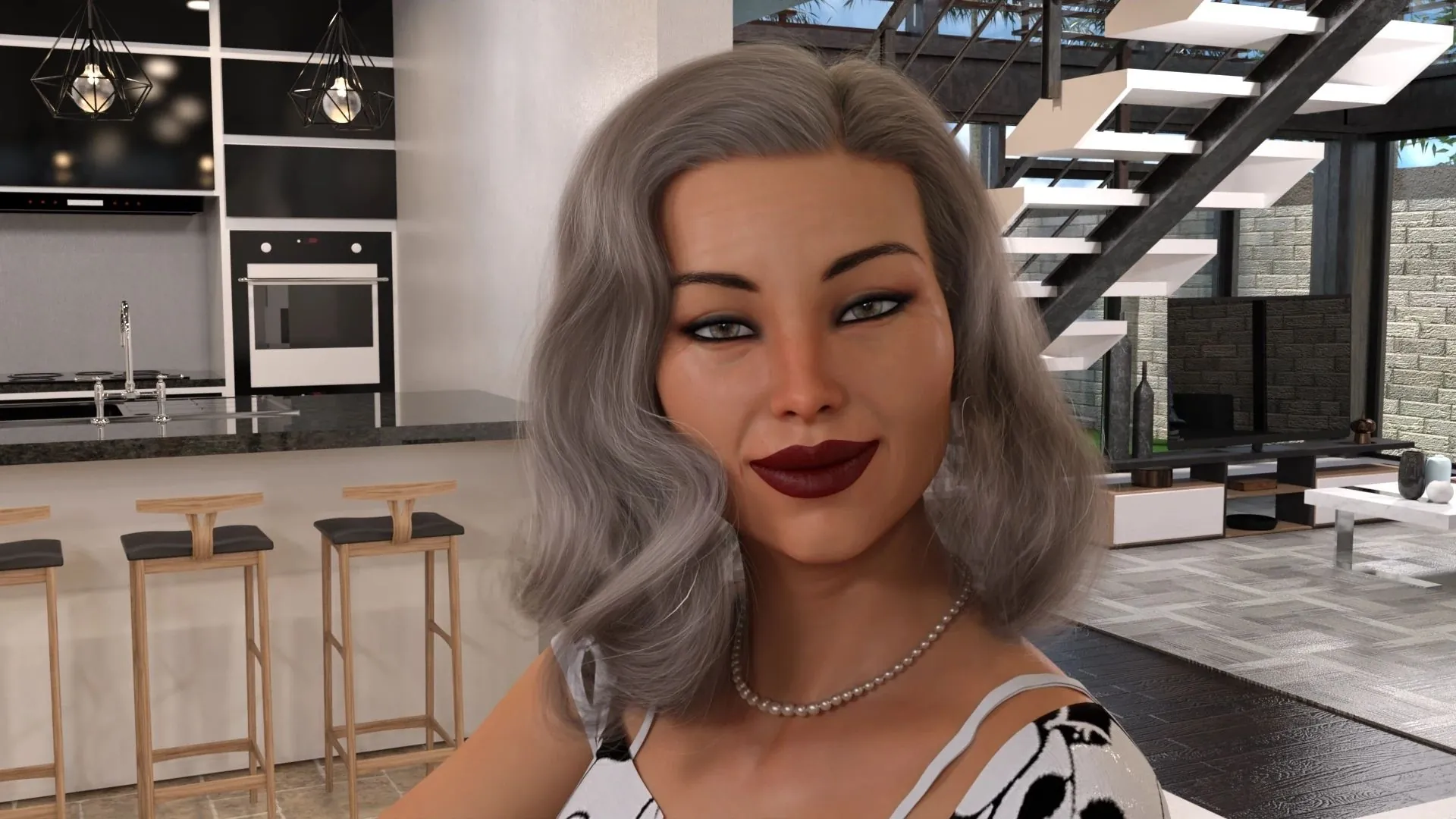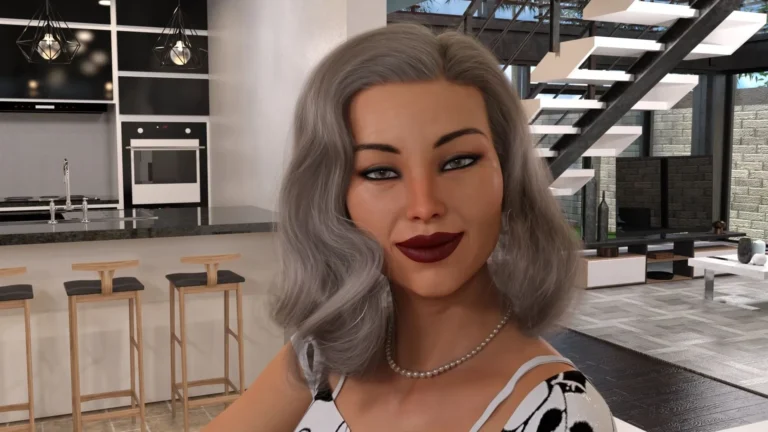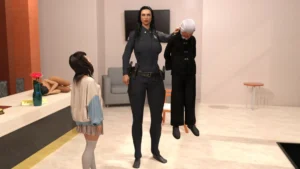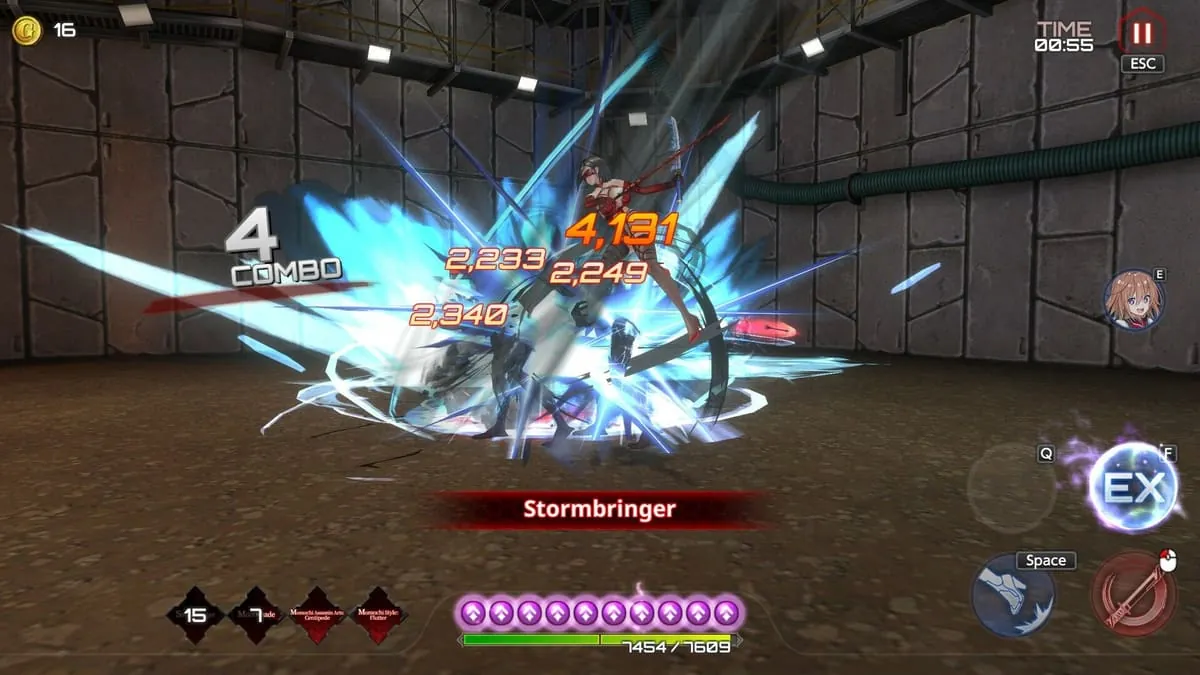
Grandma’s House
Play Grandma’s House
Grandma’s House review
Exploring the Unique Storytelling and Gameplay of Grandma’s House
Grandma’s House is an adult visual novel game that has captured attention for its immersive storytelling and character-driven gameplay. This game stands out by focusing on slow-building relationships and nuanced character development rather than rushing through encounters. In this article, we explore what makes Grandma’s House unique, how its gameplay unfolds, and why it resonates with players looking for a more thoughtful experience in the adult game genre.
Understanding Grandma’s House: Gameplay and Story Elements
You arrive at a dusty, charming old house, suitcase in hand, expecting a quiet summer helping your elderly grandmother. What you find instead is a home brimming with complex, fascinating women, each with their own stories, dreams, and secrets. This is the captivating premise of Grandma’s House game, a standout title in the world of adult visual novel storytelling. It’s a experience that trades high-octane action for the quiet, powerful drama of human connection, and it’s utterly brilliant at it. 🏡❤️
If you’re tired of games where relationships feel like a checkbox on a completionist’s list, you’re in for a treat. This game is a masterclass in patience and payoff, asking you to invest time and genuine emotional energy into its world. Let’s pull up a chair on the porch, pour a glass of sweet tea, and take a deep dive into what makes this game so special.
What is Grandma’s House Game About?
At its heart, Grandma’s House is a slice-of-life narrative. You play as a young man who moves in with his grandmother, Allie (affectionately known as Nana), for the summer. The initial goal is simple: help around the house and keep her company. But the house is rarely quiet. It’s a hub for Nana’s wide circle of friends and family, including her daughter Polly, her granddaughter Sandra, and friends like the thoughtful Veena and the energetic Karen.
The narrative style is deeply personal and character-driven. Themes of family, friendship, rediscovery, and love are explored with a refreshing lack of melodrama. The game presents a grounded reality where conversations over coffee or while gardening are just as important as any major plot twist. This isn’t a story about saving the world; it’s about understanding the people in your corner of it. The adult visual novel elements are woven into this tapestry naturally, focusing on emotional and romantic maturity rather than sheer titillation. The developer’s genius lies in treating intimate moments not as rewards, but as organic culminations of trust and affection. ☕🌻
Key Characters and Their Development
The soul of any great visual novel is its cast, and Grandma’s House boasts one of the most genuine ensembles you’ll ever meet. The character development is the engine of the entire experience. Relationships don’t just “happen”; they breathe, evolve, and sometimes stumble, much like they do in real life.
The heart of it all is the Allie Nana character. She’s far from the stereotypical frail old woman. She’s witty, sharp, incredibly supportive, and the anchor of the entire social circle. Your relationship with her sets the tone for everything else, built on mutual care and respect.
But the web of connections extends far beyond her. Each character is a fully realized person with her own history, insecurities, and aspirations. Getting to know them requires effort. You have to remember their likes and dislikes, be present in conversations, and offer support when they need it. This commitment to slow relationship building is what makes the payoffs so incredibly satisfying. You don’t just unlock a scene; you earn a moment of genuine vulnerability and connection.
Here’s a quick overview of the main characters you’ll invest your time in:
| Character | Key Traits | Relationship Dynamics |
|---|---|---|
| Allie (Nana) | Witty, nurturing, wise, mischievous | The matriarch and emotional core; your relationship is foundational and purely platonic, built on deep familial love. |
| Polly | Driven, independent, sometimes guarded | Nana’s daughter; a relationship that can develop into a slow-burn romance, requiring patience to break down her professional exterior. |
| Veena | Intellectual, gentle, artistic, introverted | A close friend of Nana’s; connecting with her involves shared quiet moments, deep conversations, and a appreciation for the subtle things in life. |
| Sandra | Youthful, energetic, playful, curious | Nana’s granddaughter; a more playful and energetic dynamic that can evolve cautiously and sweetly over time. |
| Karen | Bubbly, confident, flirtatious, outgoing | A friend of the family; offers a more direct and forward dynamic, though still requiring emotional connection beyond surface-level attraction. |
Gameplay Mechanics and Player Choices
So, how do you actually play? The gameplay mechanics of Grandma’s House are elegantly simple, putting the focus squarely where it belongs: on the characters and your choices. You’ll navigate through a classic visual novel interface, reading dialogue and narration while being presented with key decision points.
The magic is in how these player choices are implemented. This isn’t a game of “always pick the top right dialogue option to win.” Choices are often subtle, reflecting different personality approaches—being playful, sincere, supportive, or flirtatious. These decisions shape how characters perceive you and, crucially, how quickly they open up. A wrong choice might not lead to a “game over” screen, but it might make a character slightly more reserved for a day or two, forcing you to rebuild that trust. ⚖️
The pacing is deliberately slow. The game operates on a calendar system, and meaningful progress is measured in weeks, not minutes. You might spend several in-game days just chatting with Veena about her art before she feels comfortable sharing something deeply personal. This deliberate pace reinforces the game’s core philosophy: real trust cannot be rushed.
Pro Tip: Don’t try to romance everyone at once! The game encourages you to focus on one or two connections per playthrough. This makes each relationship path feel unique and far more rewarding.
Let’s look at an example of this slow relationship building in action. Imagine you want to grow closer to Polly. Early on, you might have the option to:
* Offer to help her with a work problem.
* Tease her gently about being a workaholic.
* Change the subject to something more casual.
The “helpful” option might net you a small smile and a thank you. The “teasing” option, if delivered too early, might see her brush you off politely but firmly, signaling that you haven’t built enough rapport for that level of familiarity. The game remembers these micro-interactions. The choice that leads to a breakthrough days later isn’t always a grand gesture; it’s often the cumulative effect of consistently being kind and attentive.
This approach to gameplay mechanics is what truly differentiates Grandma’s House from other games in the genre. It respects the player’s intelligence and emotional investment, offering a nuanced system where player choices have weight and consequence, not just in unlocking scenes but in defining the very quality of the relationships you build. The intimate scenes are treated with care, arriving only after a significant emotional bond has been established, making them feel earned and meaningful rather than gratuitous. This commitment to realism and emotional depth is the game’s greatest strength and the reason it has cultivated such a dedicated and passionate fanbase. ✨
Grandma’s House offers a distinctive experience in the adult visual novel genre by prioritizing authentic character interactions and gradual relationship development. Its thoughtful pacing and emphasis on player-driven storytelling create a compelling and immersive gameplay experience. Whether you’re new to this type of game or a seasoned player, Grandma’s House invites you to explore its rich narrative and nuanced characters at a comfortable pace. Dive in and discover why this game stands out for those seeking depth and realism in adult-themed storytelling.






























